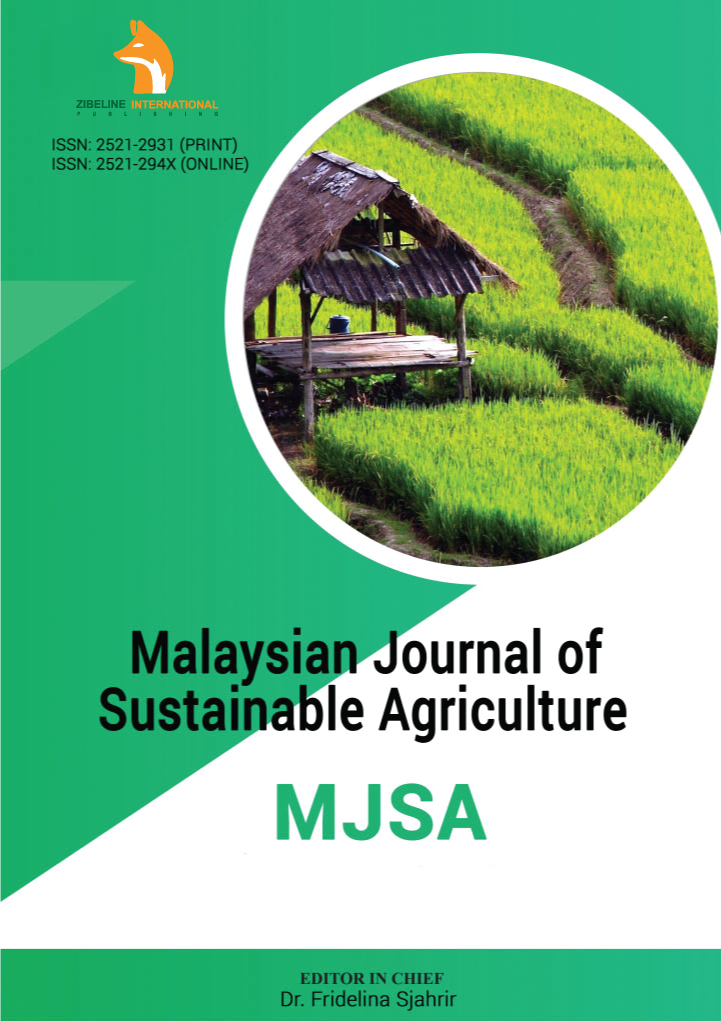ABSTRACT
BIOCHAR AND AGRICULTURAL SUSTAINABILITY: A REVIEW OF CROP, SOIL AND ENVIRONMENTAL INTERACTIONS
Journal: Malaysian Journal of Sustainable Agriculture (MJSA)
Author: Abdullahi Bamidele Olayemi, Sharhabil Musa Yahaya, Musa Modu Ayami
This is an open access article distributed under the Creative Commons Attribution License CC BY 4.0, which permits unrestricted use, distribution, and reproduction in any medium, provided the original work is properly cited
DOI: 10.26480/mjsa.02.2025.131.139

Soil degradation resulting from modern agricultural practices is of great concern and requires a sustainable management approach. The use of biochar has gain popularity due to its potential for providing lasting improvements to soil quality, eco-friendliness and ease of preparation by farmers. This review delves into biochar’s role towards addressing sustainability issues in agriculture with emphasis on mechanisms of its interactions with soil for improved crop yield and environmental safety. Biochar enhances soil water holding capacity (WHC) by proliferating soil water holding sites due to its surface area and numerous water retention pores thus nourishing crops with required moisture for its growth. It lowers soil bulk density by replacing peds and clogging voids between grains thus promoting root growth. Moreso, it increases soil aggregate stability by forming stable soil-biochar complexes thus fortifying soil aggregates against erosion and degradation. It increases soil nutrient retention through surface oxidation reactions in soil due to its functional group. It promotes microbial abundance and diversity due to its network of pore as well as its dark color which shields soil microbes from predators. It also increases crop resistance to diseases, reduce bio-availability of heavy metals and contaminants. By providing comprehensive analysis of mechanisms of biochar interaction with the soil system, it is envisaged that this may provide policy makers, farmers and land users the information on the inherent capabilities of biochar for achieving global food security through sustainable soil management, crop yield increases and getting the environment rid of pollutants.
| Pages | 131-139 |
| Year | 2025 |
| Issue | 2 |
| Volume | 9 |



